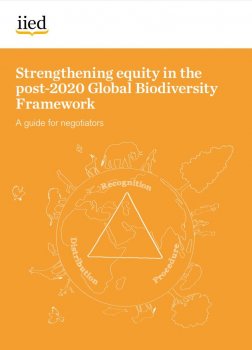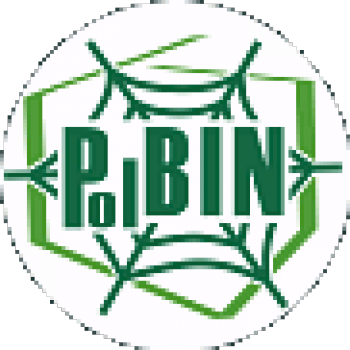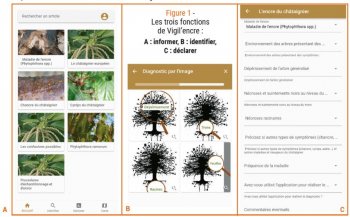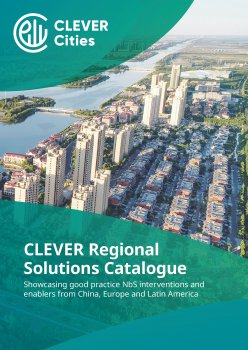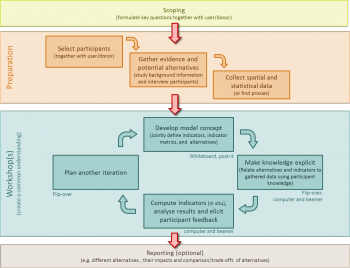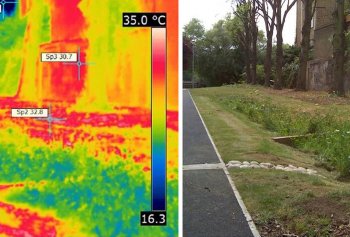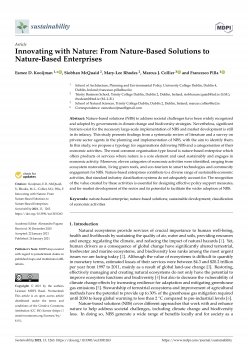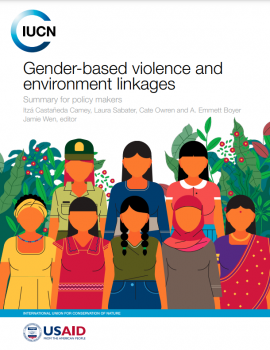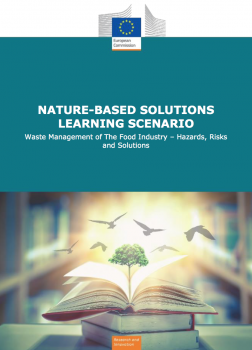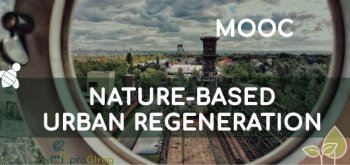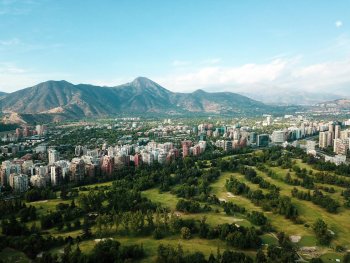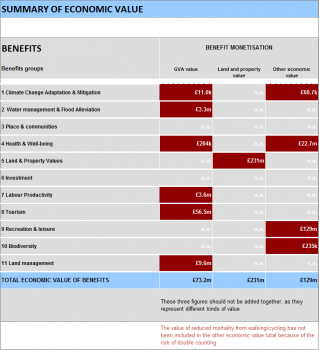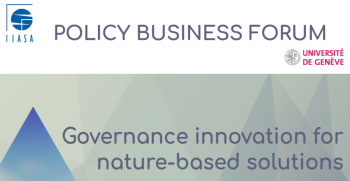Marketplace
Strengthening equity in the post-2020 Global Biodiversity Framework: a guide for negotiators
The post-2020 Global Biodiversity Framework (GBF) will be a major milestone in global agreements on biodiversity conservation, setting international ambition for the next decade. This guide is intended to support Parties to the Convention on Biological Diversity (CBD) who wish to see strengthened
Urban Nature: Connecting Cities, Nature and Innovation (MOOC)
How can nature help us design and build our cities? Nature-based solutions have the potential to provide multiple benefits across a range of sustainability challenges facing cities. This course will explore nature-based solutions in cities in Europe and around the world. It will connect together
Polish Biodiversity Information Network
The Polish Biodiversity Information Network (PolBIN) was founded in 2003. At the beginning the main goal of its activities was to initiate cooperation of Polish research institutions with the international system of GBIF (Global Biodiversity Information Facility). In 2008 it was transformed into a
Compendium of Articles/Studies on NbS/environment and health
BlueHealth is a pan-European research initiative that investigated the links between urban blue spaces, climate and health. It combined interdisciplinary approaches to examine how wellbeing might be promoted through the development of blue infrastructure. In this link you will find BlueHealth
Marteloscope
A practical tool for training in silvicultural management of chestnut, oak and beech stands located in Corrèze
CLEVER Regional Solutions Catalogue
The CLEVER Regional Solutions Catalogue seeks to elevate the role of nature-based solutions (NbS) across the urban landscape. It aims to inspire uptake and continued energy for implementing Nature-based Solutions that meet the varied needs and requirements of modern cities.
Method Factsheet - Quickscan
The QUICKScan software and QUICKScan tool (http://QUICKScan.pro) encompasses a modelling environment with functionalities to assess societal and environmental conditions, diagnose patterns and interactions, implement alternative responses and evaluate the impacts of those responses. The QUICKScan
Climate crisis, cities, and health
More than ever, the climate crisis is becoming a health crisis. An estimated 5 million people globally die each year because of suboptimal temperatures,1 with a large proportion of heat-related mortality (37%) attributable to human-induced climate change.2 Cities have an important role in climate
Innovating with Nature: From Nature-Based Solutions to Nature-Based Enterprises
Nature-based solutions (NbS) to address societal challenges have been widely recognised and adopted by governments in climate change and biodiversity strategies. Nevertheless, significant barriers exist for the necessary large-scale implementation of NbS and market development is still in its
Gender-based violence and environment linkages
This summary for policy makers synthesises key issues, findings and recommendations from IUCN’s Gender-based violence and environment linkages: the violence of inequality (Castañeda et al., 2020), an expansive publication developed in partnership with USAID. Bringing together existing and new
Waste Management of The Food Industry – Hazards, Risks and Solutions
Uncontrolled landfill sites are increasingly being used as a food-waste disposal method. These sites are often source of diseases and unpleasant odours, providing a medium for microorganisms, parasites, and rodents to breed. They can favour the formation of leachates (polluting liquids) that filter
Mapping and assessment of ecosystem services in Natura 2000 sites of the Niraj - Tarnava Mica region
The goal of the project is to assess and map the most important ecosystem services of the area based on the perception, valuation and utilization of the services by the local residents.
proGIreg MOOC: Nature-based Urban Regeneration
Cities around the world are seeking new, greener ways to transform their former industrial districts. These urban regeneration areas suffer from social and economic inequalities, lack quality green spaces and are significantly more vulnerable to climate change effects and natural hazards. Nature-
CONEXUS Policy Brief 7 - Integrating Nature-Based Solutions in Planning Instruments
The Regional Government of Santiago (RGS) aims to incorporate ecological planning criteria into its planning instruments and strategies, fostering a more resilient and equitable city-region. This policy brief outlines the city’s learning-by-doing approach, presenting three pilot projects of Nature-
Green Infrastructure Valuation Toolkit
A toolkit for valuing the benefits of green infrastructure, consisting of a spreadsheet calculator and a user guide. Monetary and non-monetary values are calculated, generally using a benefits transfer approach. Can be used either to value a planned intervention, or existing green infrastructure.
Governance innovation for nature-based solutions - PBF Workshop Summary 24 March 2020
The Policy Business Forum (PBF) consists of Nature-based Solutions (NbS) experts and knowledgeable stakeholders at the international, European, and national scale. The main aim of the PBF is to explore innovative ways to strengthen the science-policy-business nexus in order to exploit opportunities
Assessment and mapping of ecosystem services - Development of methods for assessment and mapping of ecosystem services of marine and inland waters
The general purpose of the project "Development methods for assessment and mapping of ecosystem services of marine and inland waters" is to help stop the decrease of biodiversity in water bodies and damaging of ecosystem in the European Union by supporting the preservation and restoration
Stakeholder Engagement and Participatory Processes
In areas such as nature based solutions and biodiversity, Prospex enables effective dialogue, lasting agreements and strategies for changing contexts. Prospex is a pioneer service provider in stakeholder engagement, strategic foresight and negotiation & conflict resolution in complex science-
T2.3a Report: Academic paper on NBT within future planning and management of cities
The report presents the development of Nature Based Thinking (NBT) with an emphasis of future planning within cities through a reflective process that was led by SLU, UdL, USFD and TUM in Task 2.3 and resulted in the joint writing of a paper entitled: “Supporting Nature-based Solutions via Nature
- ‹ previous
- 32 of 55
- next ›

